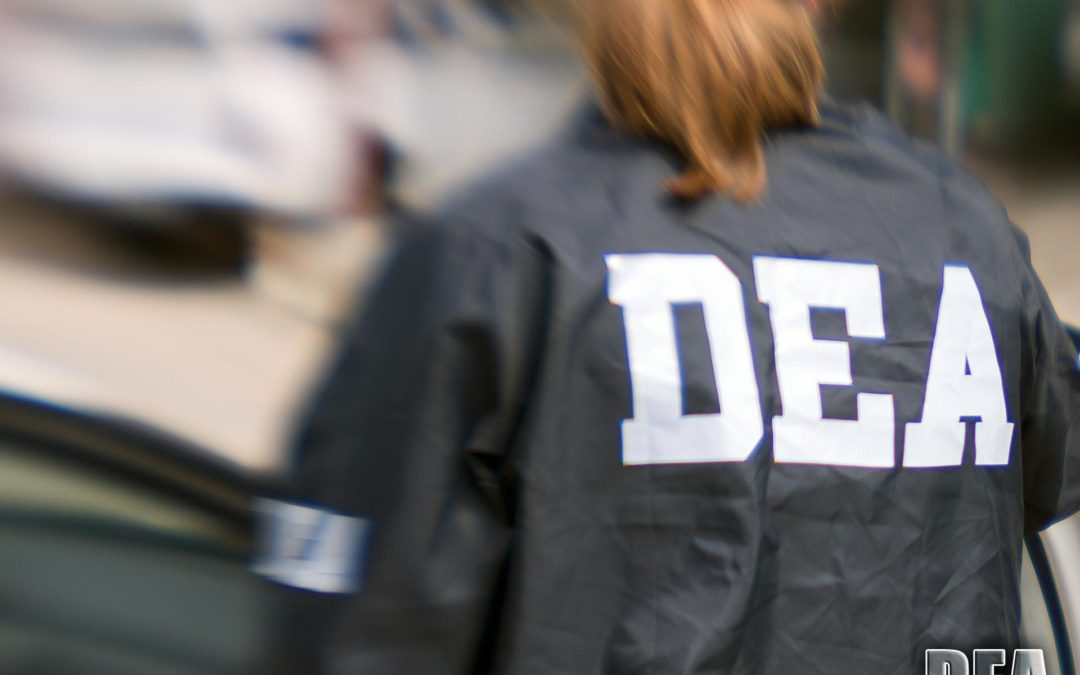
Sep 6, 2019 | Blog, News
So when you’re convicted of a crime, or a traffic ticket, you have to pay a bunch of costs. Did you know that many of those costs go back into the local court’s operating budget? So when that judge orders you to be a good convict and pay your court fees, you’re actually paying the salary of the judge’s court recorder, or paying for the copy machine they use to print your probation order. According to this source, local courts get up to 26% of their operating budget from their own generated revenues (fines, costs and imposed penalties. Not from holding bake sales).
Courts across Michigan generate $418 million per year to fund their own operating expenses. They don’t raise $418 million by finding people innocent.
But wait, there’s news. The 5th Circuit Court of the United States Court of Appeals just ruled that when judges have a personal interest in collecting costs from a defendant, they have a conflict of interest. The court said that they can’t rule in a case where their own court stands to benefit. In the 5th Circuit Court case, the judges personally didn’t benefit, but their staff salaries and operating expenditures came from some of the funds collected in court costs. And the U.S. Court of Appeals said nope.
The history of this is a bit twisted. So stay with me.
In 2014, the Michigan Supreme Court decided the People v. Cunningham case. That case threw half of a wet blanket on court fees. The Michigan Supreme Court said that the court couldn’t impose a cost unless they were authorized by the legislature to impose that cost.
And what do you think the legislature did? They ran out and passed a law that authorized the courts to collect fees. But that law is only in effect until 2020.
So someone challenged that by bringing a new court case, People v. Cameron. The Michigan Court of Appeals upheld the new law as constitutional. The Michigan Supreme Court declined to look at the case.
But in the meantime, someone saw the writing on the wall, because the Michigan Trial Court Funding Commission quietly began working on a new funding scheme that sounds a little more constitutional.
So what the Michigan Supreme Court did was decline to accept the application for leave to appeal, so that $418 million in annual court funding around the state wouldn’t go poof. The Michigan Supreme Court punted in order to give administrators time to figure out how to run the courts and follow the constitution at the same time.
Chief Justice Bridget Mary McCormack more or less admits as much. In her concurring opinion denying leave to appeal, Chief Justice McCormack said that trial court funding is a “long-simmering” problem in Michigan. She said that denying leave to appeal will “allow our current system of trial court funding in Michigan to limp forward.” She then goes on to tell the legislature to pass the new, centralized funding scheme.
Read the rest here – Pretty interesting. The whole website is good. Each city should have one – Dirty Traverse City
ABA Journal Link – Fines-and-fees system that helps fund court budget is unconstitutional, 5th Circuit rules
Gee - What a surprise... When a former 3M...
What happened to the nuclear waste from the...
Allegedly had to put on company-issued personal...
Facial RecognitionHow Technology Can Lead to...
Inside the Chinese-funded and staffed marijuana...
Oakland County Sheriff's deputy fatally shot in...
John Sinclair, the poet whose imprisonment for...
Hazel Park police are seeking assistance from...
Deceased goats pointed Calhoun County deputies...
MICHIGAN WANTS TO STUDY MARIJUANA’S HEALTH...

Aug 12, 2019 | Blog, Medical Marijuana
A judge’s ruling that a vehicle search prompted by an odor of marijuana was illegal.
An Pennsylvania judge has ruled that state police who said they smelled marijuana in a vehicle weren’t allowed to search the vehicle once they were shown the driver’s medical marijuana card.
The (Allentown) Morning Call reports that a Lehigh County judge tossed out evidence cited in support of drug and firearms counts stemming from the Nov. 7 search of the vehicle in Allentown.
“The smell of marijuana is no longer per se indicative of a crime,” Judge Maria Dantos wrote in her opinion filed earlier this month.
Prosecutors must now decide whether to appeal to state Superior Court or try to move forward without the evidence.
Defense attorney Joshua Karoly said the ruling could help change a rule allowing police to search based solely on the odor of drugs.
An eastern Pennsylvania judge has ruled that state police troopers who said they smelled marijuana in a vehicle weren’t allowed to search the vehicle once they were shown the driver’s medical marijuana card.
Have you been arrested or charged with a crime?
Call Komorn Law for a free case evaluation now (248) 357-2550 or visit KomornLaw.com or Read client reviews.
“The smell of marijuana is no longer per se indicative of a crime,” Judge Maria Dantos wrote in her opinion filed Friday.
Recent Posts
[kl_posts posts_per_page=”10″ order=”desc”]

Jul 23, 2019 | Blog
Nevada to introduce the nation’s first banking system for the cannabis industry.
The dispensary businesses are targeted for burglaries and robberies for the cash they keep around to pay overhead and employees.
Motivated by their gaming sector, officials would allow marijuana businesses to deal in electronic tokens and chips.
“We really want to deal with the public safety issue. That much cash in the hands of that many people, it’s just dangerous. It’s an attractive target,” said Nevada state Treasurer Zach Conine, who pushed for the program.
Cannabis businesses operate on a cash basis due to banks and other financial institutions having refused to do business with them citing federal laws of the Schedule 1 drug.
Nevada has to make sure they get theirs and not let that cash slip through the system. Hopefully it will be used for making Nevada a better place for families and not for idiocracy.
Attorney Michael Komorn stated “The time has come for the legitimacy of cannabis and hemp industries to be accepted and allowed to operate as taxpayers and invest in the community. If you are thinking of growing hemp or starting a cannabis business you will require legal guidance…that’s what we do“.
Recent Posts
[kl_posts posts_per_page=”10″ order=”desc”]

Jul 17, 2019 | Blog
There’s a database maintained by the Drug Enforcement Administration that tracks the path of every single pain pill sold in the United States — from manufacturers and distributors to pharmacies in every town and city. The data provides an unprecedented look at the surge of legal pain pills that fueled the prescription opioid epidemic, which has resulted in nearly 100,000 deaths from 2006 through 2012.
Some of USA’s major drug companies that saturated the country with 70 plus billion hydrocodone and oxycodone pain pills from the years 2006 through 2012 as the deadliest drug epidemic in the nation.
Just six companies distributed 75 percent of the pills during this period: McKesson Corp., Walgreens, Cardinal Health, AmerisourceBergen, CVS and Walmart, according to an analysis of the database by The Washington Post. Three companies manufactured 88 percent of the opioids: SpecGx, a subsidiary of Mallinckrodt; Actavis Pharma; and Par Pharmaceutical, a subsidiary of Endo Pharmaceuticals.
Purdue Pharma, which the plaintiffs allege sparked the epidemic in the 1990s with its introduction of OxyContin, its version of oxycodone, was ranked fourth among manufacturers with about 3 percent of the market.
Arrested or charged with drugged driving or DUI? The Komorn Law team can help. Contact our office for a free evaluation. 248-357-2550
The volume of the pills handled by the companies skyrocketed as the epidemic surged, increasing about 51 percent from 8.4 billion in 2006 to 12.6 billion in 2012. By contrast, doses of morphine, a well-known treatment for severe pain, averaged slightly more than 500 million a year during the period.
Those 10 companies along with about a dozen others are now being sued in federal court in Cleveland by nearly 2,000 cities, towns and counties alleging that they conspired to flood the nation with opioids. The companies, in turn, have blamed the epidemic on overprescribing by doctors and pharmacies and on customers who abused the drugs. The companies say they were working to supply the needs of patients with legitimate prescriptions desperate for pain relief.
See the rest of the story as well as an interactive map with some nice data info HERE
Here’s a DEA Drug Facts page
Recent Posts
[kl_posts posts_per_page=”10″ order=”desc”]

Jul 15, 2019 | Blog
When Proposal 1 passed in 2018 in Michigan for the adult recreational use of cannabis many employers wondered as to how that would impact their drug policies.
An employer can refuse to hire an applicant and terminate an employee who tests positive for marijuana.
Employers can still follow a drug-free policy. That does not change.
In Eplee v. City of Lansing (MiLW No. 07-100073, 12 pages), the Michigan Court of Appeals ruled against the plaintiff (Eplee), who failed a drug test but had a medical marijuana card.
The court ruled the employer didn’t violate the Michigan Medical Marihuana Act by revoking a conditional offer of employment.
If you are looking for an attorney that will fight for you. You found him.
Michael Komorn – provides DUI, drugged driving and criminal defense passionately an aggressively.
Call The Office 248-357-2550 or visit KomornLaw.com
In an unpublished opinion, a state appellate court held the Michigan Medical Marihuana Act (MMMA) did not provide a cause of action for an applicant whose conditional job offer was rescinded after he tested positive for marijuana during a mandatory pre-employment drug test. Eplee v. City of Lansing, 2019 Mich. App. LEXIS 277 (Feb. 19, 2019).
Plaintiff’s claims against defendants essentially revolve around the following statutory language contained in MCL 333.26424(a):
The state appellate court decision focused on the following MMMA provision:
A qualifying patient who has been issued and possesses a registry identification card is not subject to arrest, prosecution, or penalty in any manner, or denied any right or privilege, including, but not limited to, civil penalty or disciplinary action by a business or occupational or professional licensing board or bureau, for the medical use of marihuana in accordance with this act . . . .
The court held the MMMA did not make medical marijuana users a protected class. It also did not “provide an independent right protecting the medical use of marijuana in all circumstances.”
This is at least the second decision involving failed drug tests, medical marijuana, and the MMMA; both were decided in the employer’s favor.
Read the Entire Court Opinion Here
Recent Posts
[kl_posts posts_per_page=”10″ order=”desc”]





